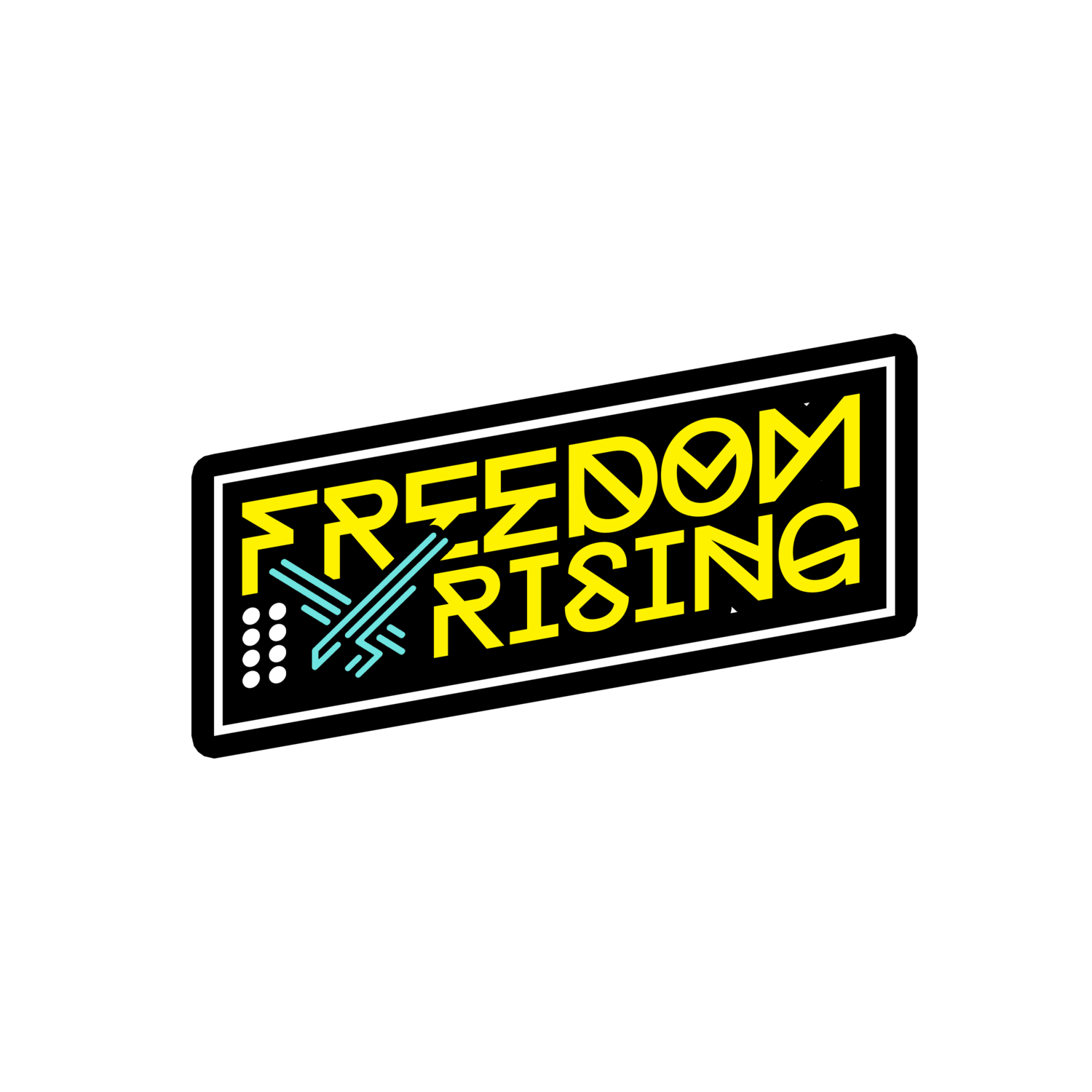RIZE: Revitalizing Authentic Leadership
/Emotional Self-Awareness + Systemic Awareness = Conscious Leadership
Emotions in Leadership
Leadership without emotional intelligence is like taking a road trip for the purpose of new experiences and sightseeing - only to fall asleep and stay asleep through the full duration of the trip. Leadership without emotional self-awareness is like sleep walking through reality. This style of leadership is destroying communities, dividing families, weakening nations, and abandoning children.
Yet within the hearts of the people is greatness that is fueled by passion, purpose and clarity for conscious action - conscious leadership is conscious action. To get access to greatness means I need to look within and acknowledge, let go of, and face the emotional energies that exist.
Applying emotional intelligence means having the ability and skill to welcome the vulnerability that comes with authentic emotional experiences whether these are painful, contractive, liberating, relaxing, and enjoyable. It includes having basic understanding of emotional drives, emotional avoidances, and internal emotional conflicts that determine behaviors such as habits, comfort zone-based decisions, and how I consciously or unconsciously strive to control for outcomes.
Living awake and authentic to the raw nutrients of emotions is a path of truth. It requires a devotion to grow and evolve with a willingness and openness for the revelation of greatness. No one can teach you what your greatness is.
Additionally, this path of truth can have its challenges, obstacles, and distractions. The capacity for anyone to serve humanity will always be limited by the level of their emotional authenticity in the context of insecurities, shame, and fear-based perceptions. I will always question the authenticity when one loudly proclaims expertise, confidently announces their distinction, and actively seeks recognition or acknowledgement. Emotional triggers, shutdowns, and avoidances diminish effective leadership and cloud the clarity necessary for conscious leadership.
As long as I avoid facing and healthily including my emotions into my life and line of work, I will fall into reactionary-based leadership. To engage in proactive work, I need to practice emotional vulnerability, empathy, forgiveness, and stepping outside comfort zones from a place of truth.
Conscious leadership is fueled by a willingness to be emotionally authentic. When I am emotionally self-aware, my life becomes heart-lead. Heart-Leaders are conscious leaders, and they have the skills and abilities to compassionately maneuver among those who are sleep walking from a place of clarity and perseverance. However this alone cannot create change, especially within systems.
Leadership in Systems
Have you ever heard the classic definition of insanity? It’s when you do the same thing over and over again expecting things to change.
Systems thinking is a skill and practice that requires an ability to understand systems for what they are. The foundation of this understanding is based on sets of principles that every system follows, whether they are systems of the natural world or systems created by human beings. Systems can range from the bonding of molecules to the process of how you wash your hands after using the bathroom.
When leaders and systems meet, they will collide or combine. Either of which is determined by principles, morals, and values of both the leader and the system as a whole.
A majority of the time we don’t literally see systems, yet we know they are there due to the outcomes we experience. The results we experience in our personal lives, professionally, and socially are regulated by systems. One can argue about choice determining the results of one’s life, however in most cases, systems at play will determine these choice options. A simple example would be the weather, you can’t choose for it to be winter simply because you chose to wear winter clothes in the summer. The system of the land has determined your choices of what you wear, how you travel, how to survive, and possibly what you’re going to do that day. Whether you choose to agree or not, whether you choose to comply or rebel, or whether you choose to participate or not, systems determine results.
To think systemically includes having to recognize, apply and consciously flow with the principles systems follow. The ability to notice these principles will undoubtedly provide leverage in personal and professional goals. It’ll provide insight in what is worth investing time and energy in regarding creating change, being a part of change, or simply enjoying life “in the meantime of change”.
It’s also important to consider that systems have protective mechanisms that create illusions of change – much like hidden insanity's. Have you ever heard the classic definition of insanity? It’s when you do the same thing over and over again expecting things to change. Specifically doing more of the same thing expecting different results. Specifically doing the same thing differently (which is contradicting but we all fall into this trap) expecting different results. Specifically doing the same thing better and expecting different results. It’s like running on a hamster wheel expecting to get somewhere. This is when motion becomes confused with progress. These sorts of traps are abusing the perseverance of great leaders, resulting in burnout, disengagement, and apathy.
When one is systemically aware and applies systems’ thinking to their life, they will have the leverage and ability to create long lasting changes through systemic alternatives or consciously influence systems they are a part of or working in. Have you ever heard the classic definition of insanity? … (see what I did there?)
Conscious Leadership
It's not that people don't know how to lead. It's that leaders are often unaware of systems that are at play, and that these systems play a significant role in their success. To the leader, this success can be determined by standing in the truth of their values and morals, or through compromise and compliance in the midst of systemic stress.
A majority of the systems that we live among are stressed. The stresses within these systems seep into connecting systems. Just like how your stressful job will affect your relationships, or how the amount of money you have that goes to your bills will affect your social life. Systems are intertwined and connected in some way.
These stressed systems are fueled by fear and shame. Fear/shame-based systems will require the emotionally ignorant to work within them in order for these systems to exist and be maintained. This results in emotionally shutdown individuals becoming attracted to titles, positions, and roles within these systems because it is within their comfort zone and justifies their behavior in avoiding certain emotions.
It’s not about who is leading, it’s about what is leading. If fear and shame is leading my life due to choices I make to avoid them, I will be consciously or unconsciously drawn to fear and shame based systems. If I am leading my life from a place of emotional authenticity, I will be drawn to alternative systems or desire to create real change.
Many of us want to be a part of real change. However we get caught up in stressed systems while attempting to change them from within, without any awareness of how systems fundamentally work. We get caught up in reactionary-based cycles, we get trapped in constantly ‘putting out fires’, and we mistake motion for progress.
When you wake up to self-awareness and systemic awareness, your choices become clear. Your presence alone becomes a healthy disruption to the comfort zones of obsolete systems and those who are working within them – inspiring growth and change.
A conscious leader has the emotional flexibility, grounding, and balance to operate within stressed systems from a place of clarity. They have the skill to notice how, where, and why systems are connected and intertwined. They also can recognize rules systems follow and consciously break them if need be. To the conscious leader, systems are a playground and perseverance is utilized in effective and efficient ways. Emotional intelligence along with systemic intelligence leads to "intelligent misbehavior" .
We are at a time when conscious leadership is necessary for our families, communities and nations. This is why the work is relevant and vital for the times we are currently in and for the times that are coming. To choose to attend phase one of the Ahkamêyimok program, RIZE, is a decision of a lifetime. We do process work that heightens emotional intelligence by clearing away emotional blocks and limited perceptions. We thoroughly cover systemic principles and highlight the relationships between systems, human behavior, and social transformation. Those who are yearning for real change, whether it’s personally, professionally, or socially, I hope it is part of your destiny to be part of Ahkamêyimok.
“There is no coming to consciousness without pain. People will do anything, no matter how absurd, in order to avoid facing their own soul. One does not become enlightened by imaging figures of light, but by making the darkness conscious.”
[Shout out to Rick Lewis, "7 RULES YOU WERE BORN TO BREAK: How Intelligent Misbehavior™ can help you and your organization thrive" and his support for social transformation]

